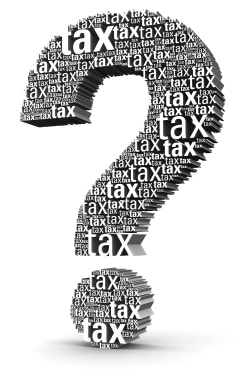Top Ten Small Business Tax Questions
To avoid financial penalties, small business owners in Canada need to be aware of how to properly file taxes. Below are some of the most common tax questions that small business owners ask our accountants.
1. Will the structure of my business affect the way I file taxes?
Yes, how you file taxes will be influenced by your business’ legal structure
- A sole proprietor will file their personal and business taxes on one return
- An incorporated business will require separate management of business and personal income and therefore both a corporate and personal tax return
2. Why do I need a business number?
- To establish payroll for your employees
- To register for harmonized sales tax (HST) or goods and services tax (GST)
- To import or export
- To file a corporate tax return
3. Do I need to register for a GST/HST number?
- You have to register if you provide taxable property and services in Canada in the course of your commercial activity and you no longer qualify as a small supplier.
- Regardless of your income, a GST number will enable you to claim input tax credits
4. How much of my income will go to taxes?
In Canada, small unincorporated business owners are subject to personal marginal tax rates on their net income. The maximum personal tax rate for 2014 is 49.41% in Ontario. Small incorporated businesses are subject to tax in Ontario at the rate of 15.5% on the first $500,000 of taxable income.
- Be sure to account for these rates during financial planning
- If you can’t pay the amount owed on your Notice of Assessment, contact a CRA tax service office to arrange a mutually satisfactory payment schedule
5. Will I have to pay into the Canada Pension Plan (CPP)?
Once your unincorporated business generates more than $3,500, you will need to pay double the amount into the CPP as you would have as an employee
- At tax time, you may deduct and claim a credit for the additional amount you are required to pay as an employer (over and above the amount of an employee)
6. If I work from home, can I expense my mortgage?
If you conduct the majority of your business from home (e.g. meeting clients) you may expense a portion of your mortgage (interest only)
- The amount that you may expense will depend upon how much square footage your designated work space takes up within your home
7. How should I claim business mileage?
- You must record the exact distances that you travel for business by maintaining a log
- Do not attempt to use “flat rates”
- If you rely on generalities without justification, your claim may be denied
8. Do I need receipts to file taxes?
Yes, keep a thorough paper trail in case you need to justify your expenditures to Revenue Canada (CRA)
- Remember your receipts are no good unless they show that your expenses directly contributed to generating income for your business
9. What if I disagree with my CRA notice?
You may file an objection
- The objection must be returned to the CRA within 90 days from when they issued your Notice of Reassessment
- You must provide detailed reasons as to why you object to CRA findings
- If CRA denies your objection and you wish to appeal their decision, you may submit your case to the Tax Court of Canada
10. What happens when my business has losses?
Losses of your unincorporated business offsets your other income
- If these losses exceed the income you have generated elsewhere, you may carry these losses back three years and forward twenty years
Successfully filing taxes for your small business is a complex process to “solve” in ten simple questions. If you want an in-depth understanding regarding your tax situation, contact our accounting firm in Toronto, Ontario.






